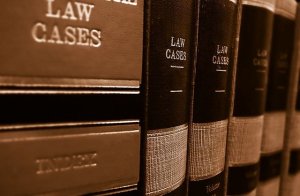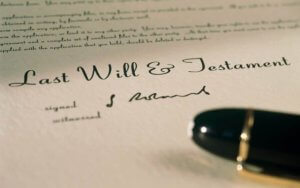- UK trusts, tax and estate planning
- Wills & Succession Planning

Shorter Reads
What happens if a will is found after an estate has already been divided?
Andrew Mason explains what options are available to challenge an inheritance that has been distributed, perhaps erroneously.
2 minute read
Published 12 November 2019
Key information
- Specialisms
- Private Wealth
What happens if, years after a relation has died and their estate has been distributed, a new Will with different beneficiaries is found?
In a recently publicised case involving 9,000 wills stored by Lloyds Bank, Lloyds has promised to compensate those who have lost out on an inheritance and will not seek to recover assets or costs from the original, incorrect recipients. But what if a will is discovered in different circumstances?
Assuming that the newly discovered will is valid (a point that may be subject to challenge by the beneficiaries who have already received assets from the estate), the starting point should be for the executors named in the newly discovered will to apply to the Probate Registry to revoke the original grant of representation and take out a new grant in their name. If there are assets that have yet to be distributed, then the new executors will take title to them from the former executors and will be able to distribute them in accordance with the new will.
If assets have already been distributed, the disappointed beneficiaries have a number of avenues that could be explored to help recover their inheritance.
Initially, the beneficiaries would be well advised to attempt to resolve matters without resorting to the courts, especially if all the parties are members of the same family. A negotiated settlement is likely to be the cheapest and least damaging to family relationships.
As with the Lloyds Bank case, the aggrieved beneficiaries may first look to the party who has failed to disclose the will. However, as this remedy will be limited to payment of compensation, it will not help to recover a family heirloom that has been incorrectly distributed.
Second, a claim could be made against the executors who took out the original grant. Nevertheless, provided that the original executors have acted in good faith (i.e. they had no knowledge of the missing will and have otherwise administered the estate in accordance with the law), they will most likely be protected by law in respect of payments they have made under the original grant. Institutions that have made payments to the executors on the basis of the original grant are similarly protected (such as banks that have paid out the balance of the deceased’s accounts).
Finally, the disappointed beneficiaries may be able to make a claim against the people who have wrongly received assets from the estate. There are typically two types of claim – a personal claim against the wrongful recipient for a refund and a proprietary claim to recover the actual property that they have received.
The personal claim is based on the principle that it would be unconscionable for the “wrong” beneficiary to keep money to which they were never entitled. It does not require any bad faith on the part of the recipient and is available whether or not they have already spent the money.
However, a personal claim is only available to the extent that the rightful beneficiary is unable to recover funds from the executors and must be made within 12 years of the date on which their right to the legacy accrued (normally this is one year after the date of death). A personal claim does not carry any interest.
The proprietary claim is perhaps more useful as it is not subject to the 12-year limitation period and may carry interest. However, as it is a claim on the asset itself, it may potentially be defeated if the recipient has spent the money or converted it into a different kind of asset. A proprietary claim is not available against a person who has purchased an asset from the estate in good faith (such as a purchaser of the deceased’s home).
In practice, these kinds of claims will be difficult to pursue and, as they rely on principles of common law rather than on legislation, any remedy will ultimately be at the discretion of the court.
The rightful beneficiaries should also be aware of the costs of litigation, which can quickly escalate. There have been many inheritance disputes where the legal fees have dwarfed the assets over which the beneficiaries are fighting.
The article was originally published in Money Observer: https://www.moneyobserver.com/what-happens-if-will-found-after-estate-has-already-been-divided
Related content
Shorter Reads
What happens if a will is found after an estate has already been divided?
Andrew Mason explains what options are available to challenge an inheritance that has been distributed, perhaps erroneously.
Published 12 November 2019
Associated sectors / services
What happens if, years after a relation has died and their estate has been distributed, a new Will with different beneficiaries is found?
In a recently publicised case involving 9,000 wills stored by Lloyds Bank, Lloyds has promised to compensate those who have lost out on an inheritance and will not seek to recover assets or costs from the original, incorrect recipients. But what if a will is discovered in different circumstances?
Assuming that the newly discovered will is valid (a point that may be subject to challenge by the beneficiaries who have already received assets from the estate), the starting point should be for the executors named in the newly discovered will to apply to the Probate Registry to revoke the original grant of representation and take out a new grant in their name. If there are assets that have yet to be distributed, then the new executors will take title to them from the former executors and will be able to distribute them in accordance with the new will.
If assets have already been distributed, the disappointed beneficiaries have a number of avenues that could be explored to help recover their inheritance.
Initially, the beneficiaries would be well advised to attempt to resolve matters without resorting to the courts, especially if all the parties are members of the same family. A negotiated settlement is likely to be the cheapest and least damaging to family relationships.
As with the Lloyds Bank case, the aggrieved beneficiaries may first look to the party who has failed to disclose the will. However, as this remedy will be limited to payment of compensation, it will not help to recover a family heirloom that has been incorrectly distributed.
Second, a claim could be made against the executors who took out the original grant. Nevertheless, provided that the original executors have acted in good faith (i.e. they had no knowledge of the missing will and have otherwise administered the estate in accordance with the law), they will most likely be protected by law in respect of payments they have made under the original grant. Institutions that have made payments to the executors on the basis of the original grant are similarly protected (such as banks that have paid out the balance of the deceased’s accounts).
Finally, the disappointed beneficiaries may be able to make a claim against the people who have wrongly received assets from the estate. There are typically two types of claim – a personal claim against the wrongful recipient for a refund and a proprietary claim to recover the actual property that they have received.
The personal claim is based on the principle that it would be unconscionable for the “wrong” beneficiary to keep money to which they were never entitled. It does not require any bad faith on the part of the recipient and is available whether or not they have already spent the money.
However, a personal claim is only available to the extent that the rightful beneficiary is unable to recover funds from the executors and must be made within 12 years of the date on which their right to the legacy accrued (normally this is one year after the date of death). A personal claim does not carry any interest.
The proprietary claim is perhaps more useful as it is not subject to the 12-year limitation period and may carry interest. However, as it is a claim on the asset itself, it may potentially be defeated if the recipient has spent the money or converted it into a different kind of asset. A proprietary claim is not available against a person who has purchased an asset from the estate in good faith (such as a purchaser of the deceased’s home).
In practice, these kinds of claims will be difficult to pursue and, as they rely on principles of common law rather than on legislation, any remedy will ultimately be at the discretion of the court.
The rightful beneficiaries should also be aware of the costs of litigation, which can quickly escalate. There have been many inheritance disputes where the legal fees have dwarfed the assets over which the beneficiaries are fighting.
The article was originally published in Money Observer: https://www.moneyobserver.com/what-happens-if-will-found-after-estate-has-already-been-divided
Associated sectors / services
- UK trusts, tax and estate planning
- Wills & Succession Planning
Need some more information? Make an enquiry below.
Enjoy reading our articles? why not subscribe to notifications so you’ll never miss one?
Subscribe to our articlesMessage us on WhatsApp (calling not available)
Please note that Collyer Bristow provides this service during office hours for general information and enquiries only and that no legal or other professional advice will be provided over the WhatsApp platform. Please also note that if you choose to use this platform your personal data is likely to be processed outside the UK and EEA, including in the US. Appropriate legal or other professional opinion should be taken before taking or omitting to take any action in respect of any specific problem. Collyer Bristow LLP accepts no liability for any loss or damage which may arise from reliance on information provided. All information will be deleted immediately upon completion of a conversation.
Close









































































